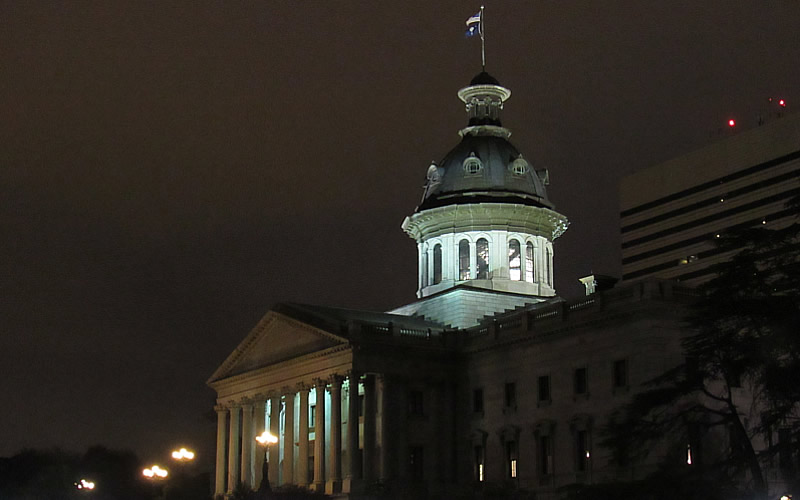
NOTE: This opinion first was published in the Charleston City Paper.
Any number of “c” words spring to mind when one thinks of the so-called South Carolina House Freedom Caucus: combative, corrosive, childish, churlish, chuckleheaded and crazypants, just to name just a few. One that doesn’t or at least shouldn’t? Conservative. Because the S.C. Freedom Caucus, with its taste for institutional vandalism and radical policy demands, is anything but that.
Ready to put a scared 17-year-old girl to death for getting an abortion? Members of the S.C. Freedom Caucus sponsored a bill to make it happen (H-3549). Looking to refight the nullification crisis of 1833? Again, the Freedom Caucus can help (H-3539). Or how about sowing distrust in our electoral institutions by falsely accusing state employees of trying to register non-citizens to vote? Yeah, the Freedom Caucus has got you covered there, too.
Of course, the 17 caucus members hate it when anyone points out any of this. After all, hijacking the popular word “conservative” — turning it into a synonym for hormonal right-wing rage, rather than a generally honorable set of political commitments — is key to their electoral strategy. Without appropriation of the “conservative” label, they’re just one more gang of angry crackpots ALL CAPPING their way through another long and lonely day on X or other social media.
So the task for mainstream Republicans this primary season is to remind South Carolinians what conservatism actually stands for — and to unapologetically retake the word from the dilettantes.
“To be conservative,” the political theorist Michael Oakeshott said in his famous definition of the term, “is to prefer the familiar to the unknown, to prefer the tried to the untried, fact to mystery, the actual to the possible, the limited to the unbounded, the near to the distant, the sufficient to the superabundant, the convenient to the perfect, present laughter to utopian bliss.” Or as National Review founder William F. Buckley more pithily put it, “A conservative is someone who stands athwart history, yelling ‘Stop.’ ”
Put simply, conservatism is less a political ideology and more a philosophical argument for slow, evolutionary change in government, society and culture. (Although, truth be told, if you look at recent fast changes on guns, abortion and sex emanating from Columbia, you may wonder who are the real conservatives.)
Everyday conservatism views established institutions and traditions as storehouses of hard-won and all-too-easily forgotten wisdom. It warns against grand schemes and unintended consequences. It sees rashness in passion, peril in certainty, folly in zeal, and danger in disorder.
In other words, it should exist to oppose every radical and irresponsible move the S.C. Freedom Caucus makes, from recent and unwarranted attacks on our state’s electoral system to extreme and often just plain kooky legislation that seeks to suddenly change our state in ways we can hardly imagine.
Long story short, there’s a reason Lexington Republican Rep. Micah Caskey — a Marine Corps veteran of Iraq and Afghanistan and longtime man of the right — recently donned a tinfoil hat to mock Freedom Caucus members on the House floor. And it wasn’t because they’re “ultra-conservative.” It was because they aren’t conservative at all.
GOP voters need to keep all of this in mind when they find themselves staring at a Freedom Caucus name on a primary ballot. Perhaps they’d like to consider a conservative instead.















 We Can Do Better, South Carolina!
We Can Do Better, South Carolina!
So you say, if considering voting for a freedom caucus member to elect a Conservative, maybe we should consider an actual Conservative, but you don’t name any. This article is useless in my book.